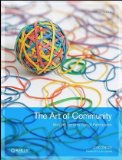Most good open source projects attract an audience of supporters. When the buzz around the project reaches a certain point, it will also pull in detractors. We commonly use the term “community” to describe the group of people discussing the project. Mostly we mean the supporters, but it really includes anybody with an interest in the project, good or bad.
When you observe these communities for long enough, certain archetypes emerge…
Fanboy: ravenously positive about the application, even though he’s never used anything else. Will viciously attack anyone who makes even the slightest criticism of the project. Sometimes, the fanboy has never used the application, but is really just a fan of the lead developer.
Zealot: Highly attached to the application. Probably would agree that it’s great as a floor wax and a dessert topping. Will jump in and defend it whenever anyone says anything negative about it. Tends to put out a lot of “+1 me too!” messages.
Enthusiast: Likes the application, and is generally positive about it. Will acknowledge that it has some faults, but feels that they are minor enough to ignore, or can be worked around.
Stoic: Uses the application, but views it as a commodity. If something comes along that looks significantly better in some way, he’ll switch.
Skeptic: Uses the application, but tends to complain about anything that doesn’t work exactly as he thinks it should. Highly suspicious of the motivations behind many design/feature decisions.
Grump: Only uses the application because all the competing products suck even worse. Constantly angry because the developers won’t add the features he thinks are important. As soon as something better comes along, he’s out of here, and he’s taking all his friends with him!
Hater: Doesn’t know why anybody would touch the application with a ten-foot pole. Complains that everyone who works on the project is untalented/idiotic/has a hidden agenda. Has never used the product, and never will, because it’s so inferior to his favorite tool. Likes to troll the mailing lists with inflammatory statements, just to stir up trouble.
Fortunately, most community members will be Enthusiasts. But the extremists, while few in number, can often form a vocal minority which can overshadow the moderate majority. When you start hearing an outcry of praise or complaints, it might be worthwhile to consider if these are really the opinions of your core users or not.

Pingback: Tweets that mention Open Source Community Personality Spectrum -- Topsy.com
Pingback: Tweets that mention Open Source Community Personality Spectrum -- Topsy.com
Pingback: Tweets that mention Open Source Community Personality Spectrum -- Topsy.com
Pingback: Libology Blog » Personality Spectrum